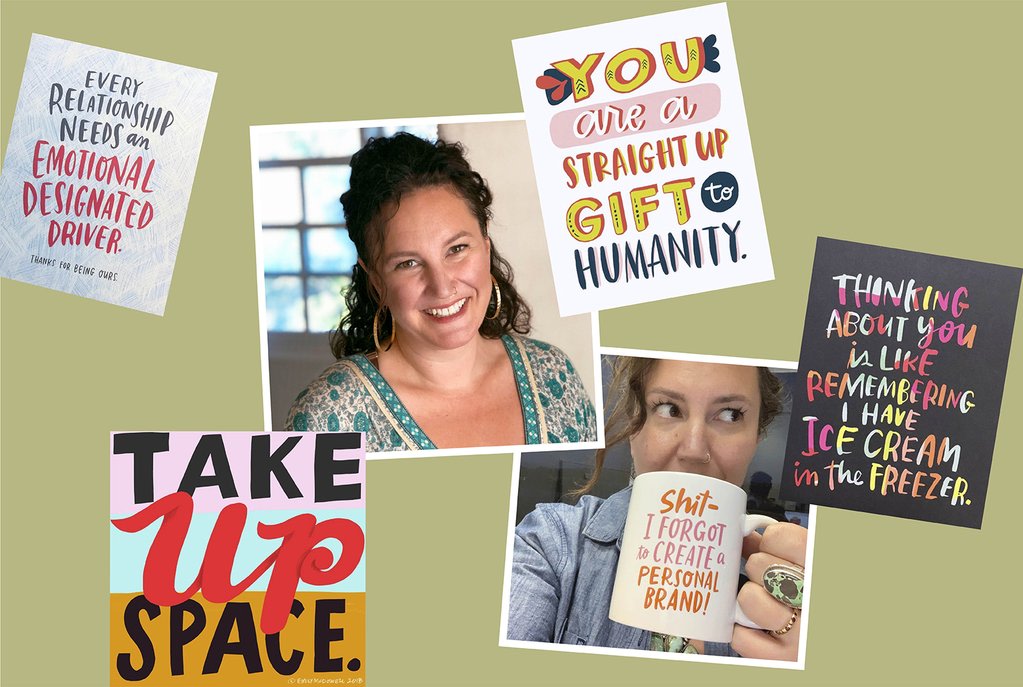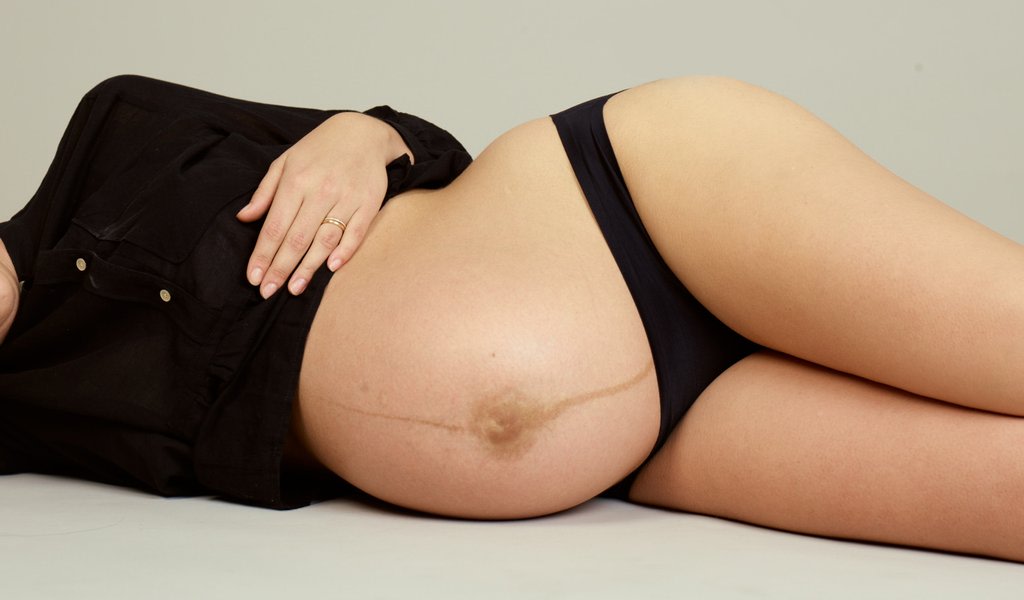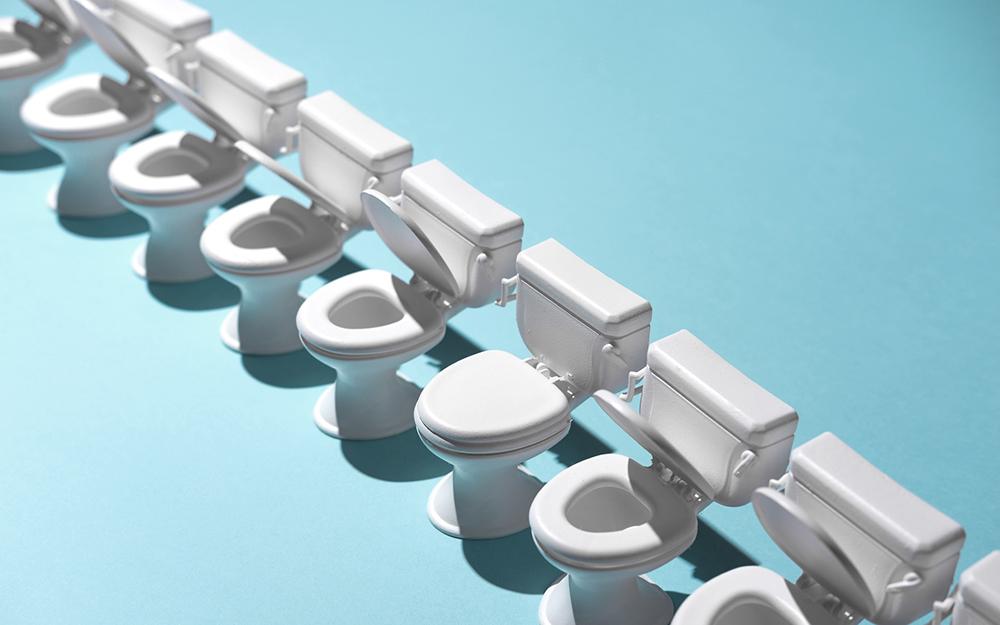Emily McDowell on Balancing Business and Self-Care

by Team Thinx
It’s not a huge secret that our culture isn’t so great at talking about tough subjects (cough *politics* cough), but there are times where the avoidance tactic just doesn’t work. For Emily McDowell, battling cancer in her 20s—and seeing so many people in her life struggle with what to say—inspired her to come up with a straightforward solution: greeting cards that actually say what we mean, and how we feel. (Behold my ideal Valentine’s day card.)
It’s a simple idea with pretty radical consequences, and it has grown into a full-fledged company with a reputation, like its founder, for ignoring avoidance and embracing radical honesty. In that spirit, Emily got real with us about running a one-woman business (without running herself into the ground), navigating the mysteries and night sweats of early onset perimenopause, and why putting yourself first is the most challenging *and* most important choice you can make.
Speax: Your business has grown extremely rapidly. How have you handled the ups and downs over the years?
Emily: Honestly, I feel like I could teach a master class on what not to do! The balance I have now is a direct result of making every mistake possible when it came to managing my own health and happiness while running our company. The demands of the world and your business will come relentlessly at you no matter what, and the nature of being an entrepreneur means that your work will never feel “done.” This essentially sets you up to forego your own human needs in service of your business, unless you make the deliberate and often challenging choice to put yourself first.
A couple of years ago, when I was handling a really tough, months-long situation with a dishonest distribution partner, I remember explaining to a friend, “I don’t have time to feel these feelings (of betrayal, sadness, etc.). I need to handle the company. I’ll deal with the feelings later.” At the time, the crushing weight of responsibility felt like it would break me if I allowed myself to process emotions. But by ignoring my own needs, I ended up being a less effective leader, in addition to prolonging my suffering.
What does your self-care practice look like?
I read books that aren’t about business. I spend time outside. I meditate and do breathwork. I make deliberate time to see the people I love. I’ve let go of relationships that didn’t feel nourishing. I’ve cut way down on social media. I write in a journal. I have a face-washing ritual, and I prioritize sleep.
But the biggest one, which is a continuous practice, is observing my thoughts and feelings instead of getting caught in them.
Your Empathy Cards are all about cutting through the bullshit and getting to what people really want to hear during the worst moments of their lives. Why do you think this is important?
In our culture, we don’t learn to talk about illness or death, so when it happens to someone in our lives, most of us feel really ill-equipped to deal with it. We’re afraid of saying the wrong thing, so sometimes we say nothing. We want to help, so we offer up suggestions and platitudes. But when you’re going through something terrible, none of these things are actually helpful.
The hardest part for me about having cancer wasn’t the being sick part; it was the loneliness I felt when relationships withered and friends shied away because they didn’t know what to say. With Empathy Cards, I wanted to create a way to help bridge that gap, and for people going through hard times to feel supported and seen. The best thing anyone can say is “I see you, I’m here for you, I love you,” and Empathy Cards are essentially all different ways of expressing this core support.
So many women don’t know what perimenopause is until they’re in it. What has your experience been like?
Oh man. I really wish people talked about this more. Mine began a bit earlier than normal due to the chemo and radiation I had in my 20s, and I had a solid two years where I thought I was going crazy — awake every night at 4 am, drenching night sweats, brain fog, mood swings, awful PMS, and more. I don’t want to scare anyone, because every woman’s experience is different, and I have some friends who aren’t affected at all. But for those of us who are, it can be really rough.
However, nine months ago, I changed my diet in an effort to improve my overall mental and physical health, with intense perimenopause symptoms being a component of that. I stopped eating sugar, flour, and corn (which is my own particular sensitivity) and I quit drinking alcohol, and my perimenopause symptoms are 90% gone. I don’t even know where I am in my cycle without looking at my Clue app, which would have been unfathomable to me a year ago. Making huge dietary changes isn’t easy, but honestly, I feel so much better now that I don’t struggle at all with it.
Best life advice you’ve ever received? Worst?
Best: Don’t be so attached to who you think you are—the identity that you’ve constructed—that you limit yourself or keep yourself in situations that don’t serve you.
Worst: The glorification of “hustle” culture.
Follow Emily’s work on Instagram and find yourself the perfect card for imperfect moments here.
Posted: July 31, 2019
Related Articles
one new subscriber wins a free pair of Thinx every day! see rules


